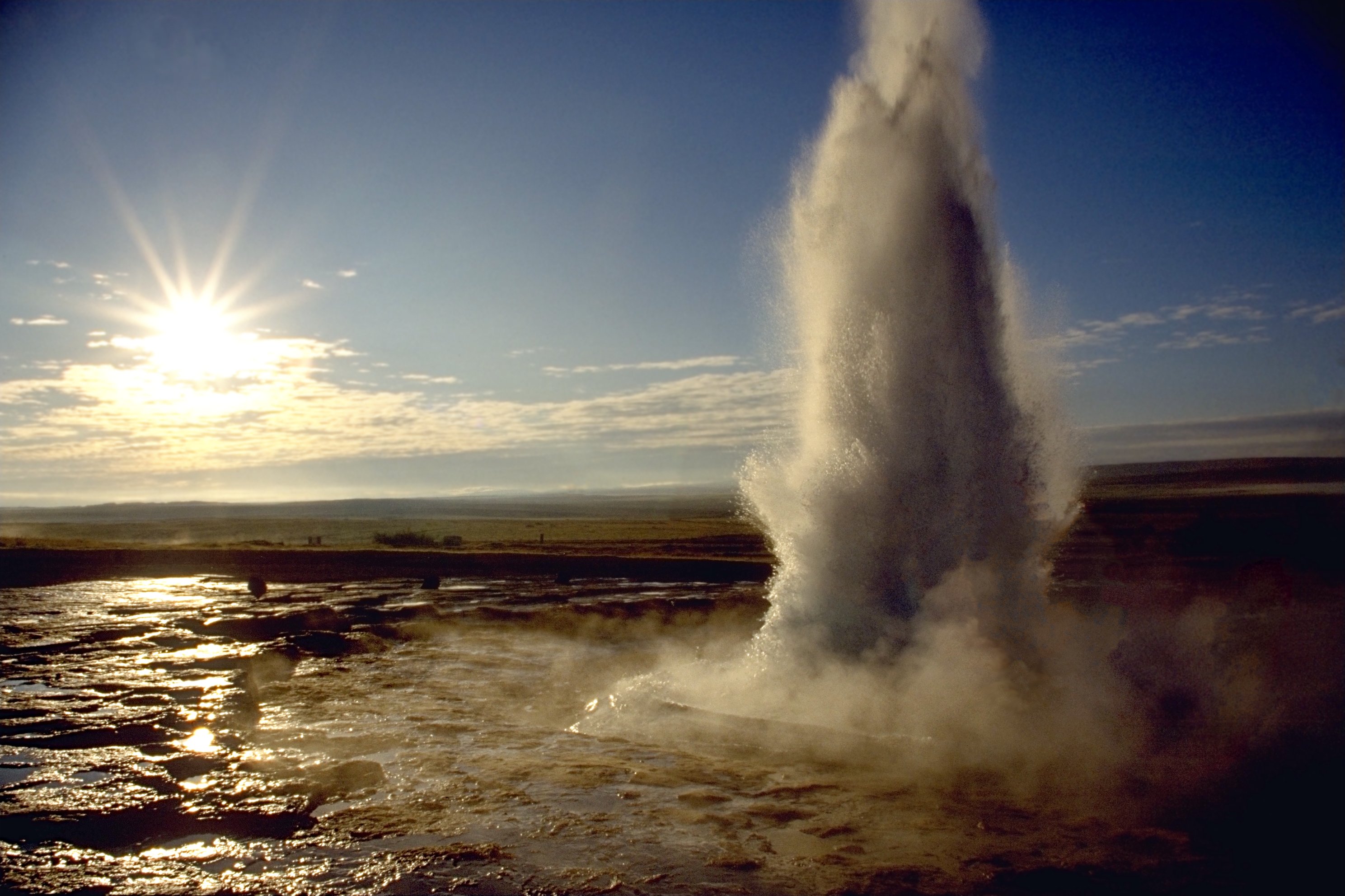 |
| Source: Freepik |
If the sky is suddenly covered with clouds and it begins to rain cats and dogs😅, we hurry to get under cover. Even in summer, it's not very pleasant to get soaked to the skin, and when the bad weather has passed, it slips our minds, and we think not about it happening again.
But what if precipitation really did disappear from our lives forever? Normally, from the sky, trillions of small water droplets, 5 to 7 millimeters in size, form rain and snow ice crystals when the temperature drops below freezing.
But what if these droplets cease to fall?
At first glance, it would seem there's nothing to worry about, but in fact, the absence of rain will lead to a global catastrophe. If precipitation halts altogether, one of the central processes occurring in nature will be disrupted, which is a continuous water cycle in which moisture evapourates from the surface of the seas and oceans and migrates up into the atmosphere.
 |
| Water Cycle | Source: Genie Book |
Once there, the vapor condenses into clouds and returns to the ground as rain or snow. The total amount of this vital liquid generally remains unchanged, but its composition changes radically. Salt water evaporates from the surface of the seas and oceans, and from the atmosphere it returns fresh and purified from harmful contaminants. But if the evaporation from the seas and oceans does not return to the earth as precipitation, the cycle will be broken forever.
When precipitation cease to occur
The first and most obvious thing that will begin to happen is the disappearance of plants, many of which serve as food for humans and animals. For example, the fest dukkha will last several times longer, but they too will suffer the same eventual fate as the silk grass, and because of the increasing dryness of the soil, all plants will be prevented from reproducing. Luckier will be vegetables and crops, and people will have to water them to provide themselves with food for irrigation.
Water from our seas and oceans can be conserved. Modern technologies offer numerous low cost and simple methods for doing this, for example, using distillation or electrodialysis, but water is not endless. Every day, sun evaporates 1,000,000,000,000 (a trillion) tons of water.
Even if people weren't to use water at all, then without rain, water would disappear within roughly 2,500 years, and if we were to use water as we obviously would, then it would all disappear that much faster, and as the reservoirs dry up, of course, their inhabitants would die.
If we add to this the general shortage of water, it's unlikely that they will survive under such conditions. After them, predators will be the next to fall, as they will have no more herbivores to eat, and after that, it will become much more difficult for people to provide themselves with food.
If we add to this the general shortage of water, it's unlikely that they will survive under such conditions. After them, predators will be the next to fall, as they will have no more herbivores to eat, and after that, it will become much more difficult for people to provide themselves with food.
In addition to food problems for humans. The absence of plant cover will lead to diabolical changes in the Earth's atmosphere during photosynthesis in plants. Oxygen is released, an important component of the air we breathe.
 |
| Photosynthesis | Source: Wikipedia |
Then photosynthesis ceases to occur
The remaining oxygen will only last for about 2,000 more years. Additionally, tree leaves and tall grasses create a soft, moist microclimate, protecting the planet from withering winds and the scorching rays of the sun.
Without these protectors, temperatures will begin to rise alarmingly quickly. According to some estimates, temperatures could increase annually by as much as 36 °C, which in turn will accelerate the process of evaporation under such conditions.
Problems regarding hygiene will become exceedingly acute. The lack of available water could cause the spread of a variety of diseases, and it will be difficult to treat these diseases as the shortage of water will make the production of medicines nearly impossible.
Then electricity cease to occur
We shouldn't forget that without water, the average person can live a little longer than three days. The draining of the Earth's water reservoirs will also lead to difficulties in obtaining, as unexpected as it may sound, electricity without water. The turbines of hydroelectric plants are doomed to be stilled forever, and nuclear power reactors will have nothing to cool them.
Due to the widespread shortage of electricity, many factories will cease to function, and telephones and satellite communication may well disappear. In addition, problems with heating will commence, and the streets of our cities will drown in darkness at night. Thus, the disappearance of the rains will soon become fatal for all mankind, turning the planet into a lifeless desert.
Is it possible to solve this draining problem theoretically?
Yes, water can be obtained by chemical means for hygiene, food, agricultural needs, and drinking, and electricity can be obtained using alternative methods such as, for example, windmills. Winds on a planet without trees will become quite potent, so this method will be very useful. Energy can, of course, be produced using solar cells, but they only work during the daytime.
In contrast, geothermal power stations aren't able to generate electricity from the heat of underground sources, for example, geysers, around the clock. True modern technology unfortunately does not allow us to penetrate very deeply into the ground.
 |
| Geysers | Source: Wikipedia |
At the moment, only 2% of the world's potential geothermal energy is readily available, which is 840 billion watts, but this would be more than enough to meet the needs of humanity. However, it's quite likely that mankind won't have the time to build the factories that create water or to construct the required number of windmills to produce enough electricity.
Artificial ecosystem
In the case of a natural worldwide catastrophe is like, every second counts, and erecting complex objects during a water shortage would put us in quite a tight spot. Certainly the level and quality of life would fall dramatically and the population of the earth would significantly decrease, but the rest of humanity could try to create artificial ecosystems by building closed self-contained giant domes. Stocks of water and energy in them should suffice for the needs of plants that support the atmosphere as well as the production of food for humans and animals to save mankind.
 |
| Artificial Ecosystem | Source: Agrocorrn |
Underground cities may be of assistance; there's a fairly constant temperature and no tornadoes, squalls, or dust storms. But if people don't have time to build capsules or underground sanctuaries, they are unlikely to survive for long on the hot, dehydrated surface of the planet, and yet even in this case, life in our world will not end.
Who could survive this catastrophe?
It's likely that microbes and bacteria, which scientists call extremophiles, will survive. These hardy creatures are able to adapt to the unbearable heat and lack of sunlight in the water. Some of them can even survive and reproduce while being fed only a steady diet of carbon dioxide, but whether they can evolve into intelligent beings is impossible to predict.
So what's the deal with all this dystopian fantasy, you may ask? Well, we haven't modeled this theoretical situation just for fun. This is an excellent occasion to raise awareness of important global problems we face in the 21st century.
We cannot magically violate the water cycle in nature, as we've surmised here, but deforestation, increasing atmospheric carbon dioxide concentrations, increasing particulate matter in the atmosphere, as well as the contamination of water bodies, are all leading to malfunctions or one day to the destruction of the cycle. As a result, irreversible ecological changes are taking place on the planet.
An example is the Caronian spit located in the Kaliningrad region. Due to the destruction of the forests, this once vibrant ecosystem has begun to turn into a desert. At present, the speed of deforestation worldwide has reached its peak. It's difficult to talk about exact figures as the organizations that keep these records rely mainly on official data from relevant ministries in individual countries.
What does the future of deforestation hold?
According to their estimates, in just the first five years of the 21st century, the earth lost six million hectares of forest annually. This is not even considering the fact that, for example, in Peru and Bolivia, about 80% of logging is illegal, and in Colombia, 42%.
 |
| Illegal timber trade | Source: Panda.org |
There are also large gaps in the data for the Amazon in Brazil. The only thing that's clear is that certain deforestation around the globe is happening much faster than official sources report. If we do nothing, there will be trouble.
One future catastrophe awaits us regarding drinking water, without which we simply cannot survive. Each inhabitant of the earth uses about 750 m2 of fresh water. According to scientists, by 2050, this figure will be halved, meaning that up to 80% of the countries in the world will be suffering from a shortage of fresh water.
Forecasts indicate that in Africa alone, by 2025, due to climate change, about 1.8 billion people will be experiencing severe water shortages, and by 2030, almost 5 billion people will be living without satisfactory water treatment, which will be approximately 67% of the world population, so that our planet does not become a giant wasteland and mankind won't become mired in fierce and bloody wars for precious resources.
How we can stop this?
First, stop this massive deforestation, begin to consume water more judiciously, and look towards more innovative eco-friendly technologies that will reduce the harmful emissions that are polluting the atmosphere. We need to entirely reconsider our role in this ecosystem. At the moment, we are behaving like parasites.

